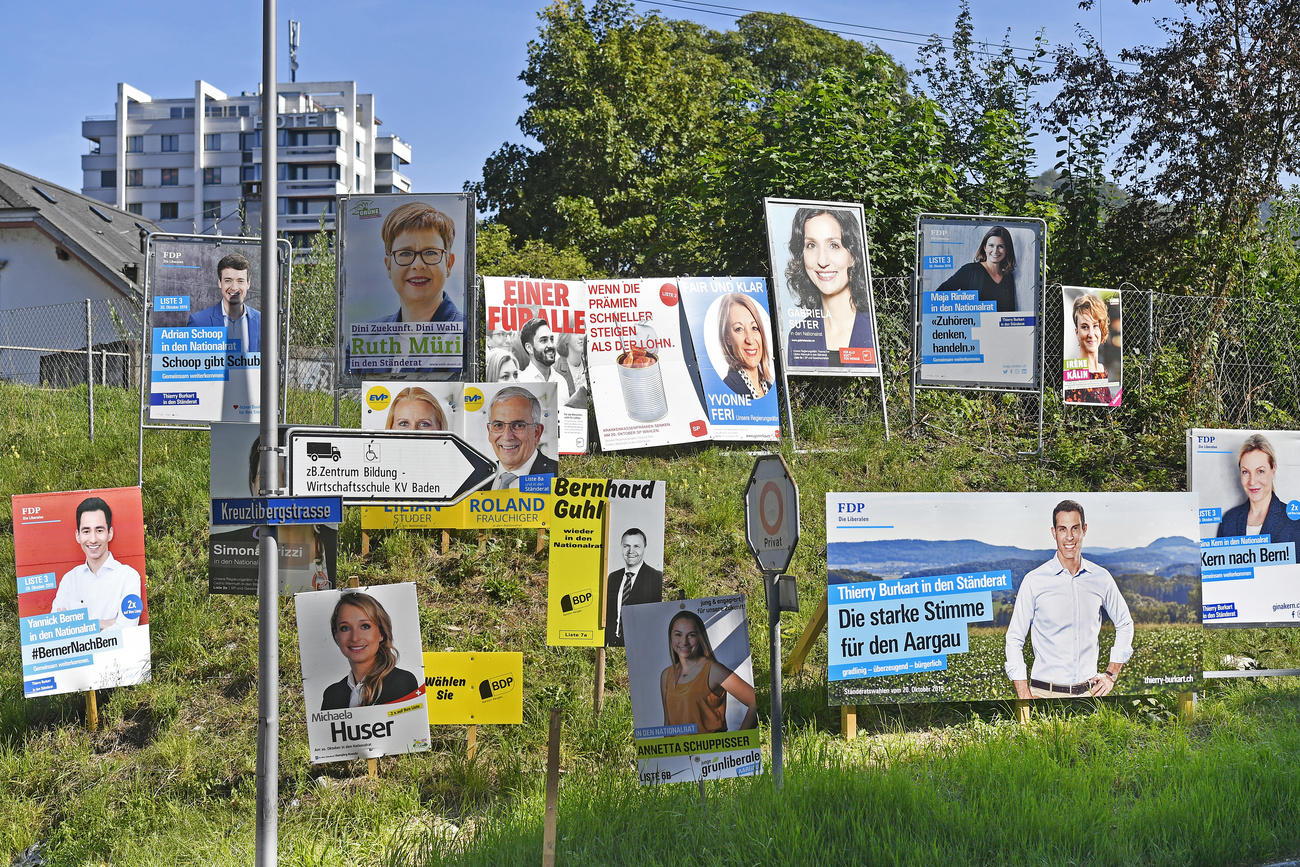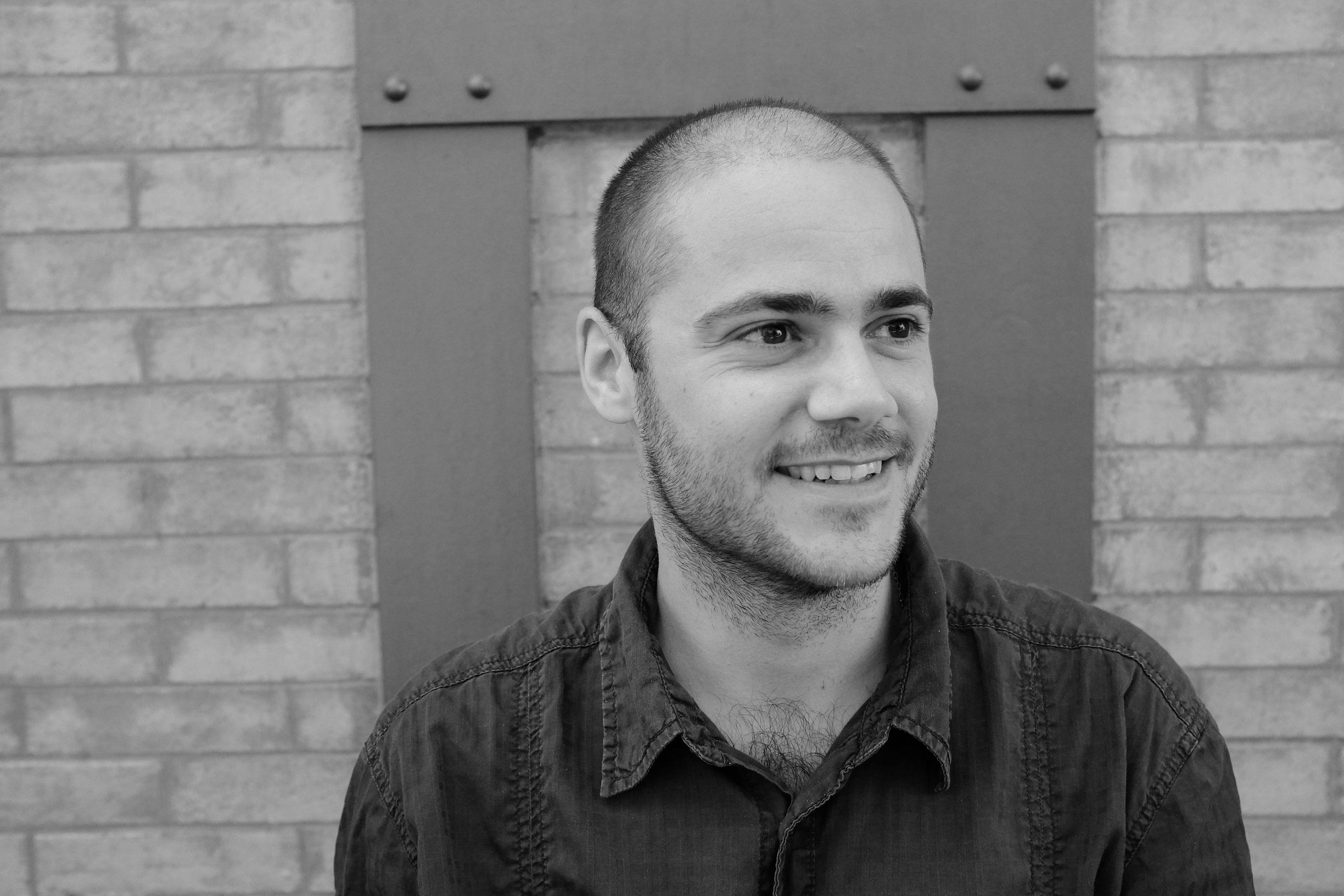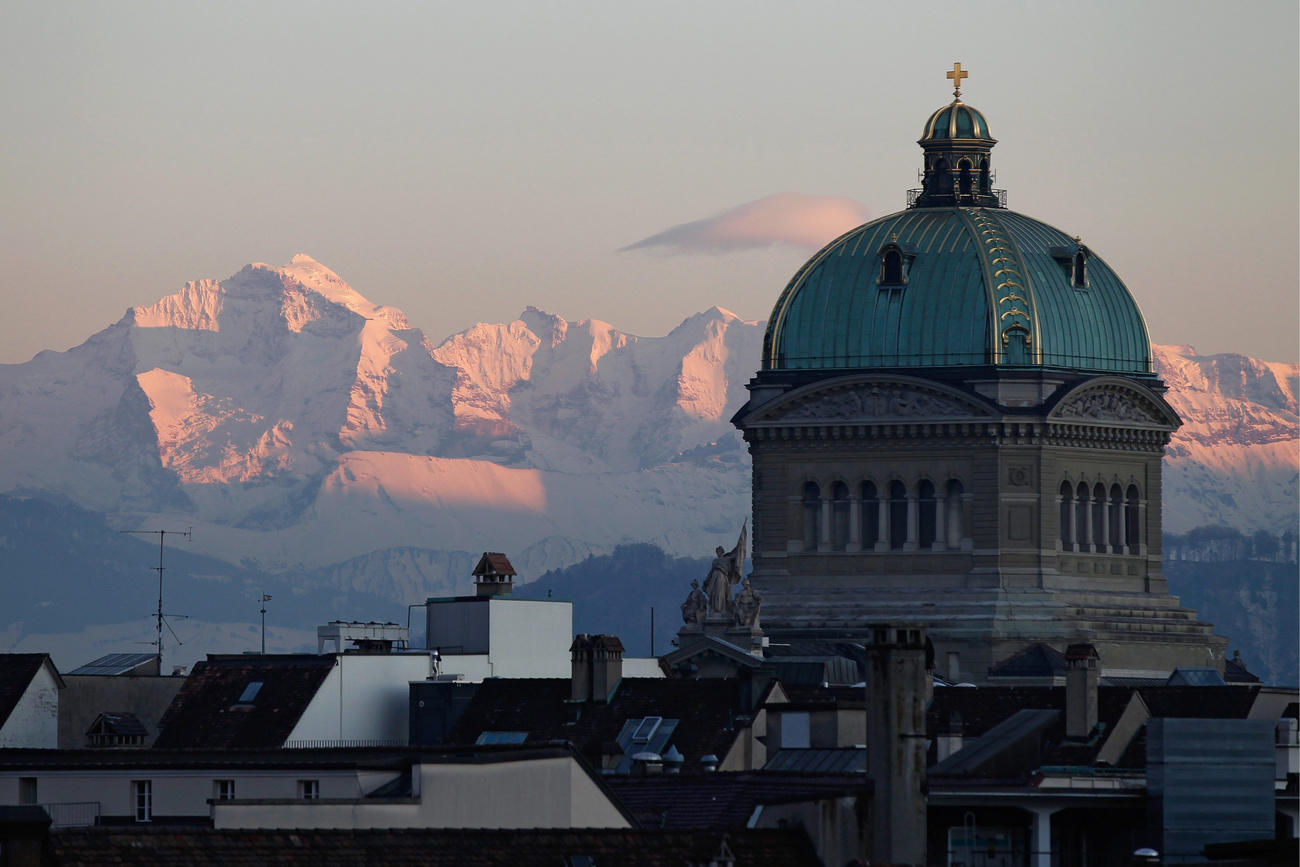
‘Switzerland is not a country of big ideas’

With just two weeks to go before the 2019 parliamentary elections, where is the excitement that imbues campaigns in other countries? The flavour of Swiss elections is decidedly dull by comparison and direct democracy is to blame, according to political scientists.
Despite the protests and strikes for the climate or equality between the sexes, the big issues of these uncertain times have not infiltrated the political debate in Switzerland.
While immigration and asylum have often dominated past electoral campaigns, nothing this year has triggered a call to arms between the political parties in the run-up to the October 20 polls.
The monotony comes as no surprise researcher Sean Müller at the University of Bern’s institute of political science.
swissinfo.ch: While we could have imagined that the parties would take strong positions on questions of climate change or equality between the sexes, no issue seems to have animated the election campaign. Why?
Sean Müller: This year there has not seen a shocking event on which the parties have been obliged to take a position, such as the so called ‘refugee crisis’ of 2015 or the nuclear accident at Fukushima in 2011.

The current issues – climate, equality or the health system – are not completely new issues linked to sudden events. The parties can avoid talking about these issues, even if, paradoxically, they have an impact on more people than the ‘refugee crisis’.
The two last exciting electoral campaigns were the exception. The rule is this year’s dull election campaign.
swissinfo.ch: Is the country doing too well?
S.M.: It’s not only that. The country was already doing well, four or eight years ago: there was no big economic crisis, strikes or political deadlocks like in other countries.
Perhaps it is the mindset which is going too well. We are used to the ‘normal flow of things’ in which everyone works together.
The parties themselves have modest ambitions. The People’s Party wants to maintain its 29% share of the vote. The most audacious are the Greens, which are looking to gain four or five seats, but that is a small part of the 200 seats in the House of Representatives. If the parties do not have ambitious objectives, how can the public be passionate about the campaign?
swissinfo.ch: Why are election campaigns in other countries more exciting?
S.M.: Because in Switzerland, we have a system of direct democracy. Up to four times a year, the parties can debate concrete subjects during the nationwide votes.
They have several occasions to explain their positions, and the citizens know them.
The elections are a bit boring because we again hear the same arguments, unless there has been a new event. In the neighbouring countries, it is mainly the elections which allow the parties to take positions on different issues.
swissinfo.ch: Does that mean that dull campaigns are an inherent part of the Swiss political system?
S.M.: Yes, the Swiss parties are less important than in the countries around us.
Because we vote on almost everything, the parties do not have a monopoly over the political agenda, nor the last word, which goes to the people or to the cantons.

More
Record number of political hopefuls to try their luck
In addition, federalism and multilingualism are an obstacle for the parties. Ideally, a party should have unique message and be represented by one or two people across the country.
Here, there are no political personalities which are known in all the linguistic regions, aside from Christoph Blocher from the People’s Party. Some cantonal party sections are also a bit more to the right or to the left. In neighbouring countries, the parties are more professional, disciplined and coherent.
swissinfo.ch: The Swiss political consensus therefore sort of kills the political debate…
S.M.: Yes, but it also allows the Swiss parties to be more ideological than in the neighbouring countries.
Switzerland’s Social Democratic Party is more to the left than in Germany, while the Swiss People’s Party is a lot closer to the Alternative for Germany (the far-right group AfD) than to the conservatives [of the CDU].
In Switzerland, the parties can be extreme because they will never be able to do all that they say but will have to compromise with a lot of other players.
There is also less unity at the heart of the Swiss parties and so fewer strong personalities to animate a campaign.
The advantage is that our system favours diversity, by giving the opportunity to different people to make a career in politics and to speak about their issues.
swissinfo.ch: Does a dull campaign foreshadow a parliament that will not make big advances?
S.M.: Switzerland remains a conservative country. It is not a country of revolutions or big ideas. But it does depend on who is going to win. It is still possible that the Greens win three or four seats. The parties on the right will not remain fixed in their positions, they have revealed an openness on social issues like gay marriage.
The elections are also going to lead to generational change and change among the representatives of the different linguistic regions. These are just details. The next parliament will not herald big changes.
In Switzerland, change is very slow but, once a decision is taken, it is accepted by just about everyone, because everyone has been able to participate in the process.
A candidate for the House of Representatives has come in for criticism after he put up posters in his constituency of Appenzell Inner-Rhodes.
The representative for the Swiss People’s Party in fact broke the rules because the political parties and institutions agreed in principle to do without public posters.
The reasoning behind the de-facto ban is that none of the candidates need poster campaigns as they are already well-known among a community of 16,000 citizens in the rural region of eastern Switzerland.
The rule was endorsed at the open-air assembly of Appenzell Inner-Rhodes last April.
(Source: Swiss news agency, Keystone-SDA)
Translated from French by Sophie Douez/urs

In compliance with the JTI standards
More: SWI swissinfo.ch certified by the Journalism Trust Initiative































You can find an overview of ongoing debates with our journalists here . Please join us!
If you want to start a conversation about a topic raised in this article or want to report factual errors, email us at english@swissinfo.ch.